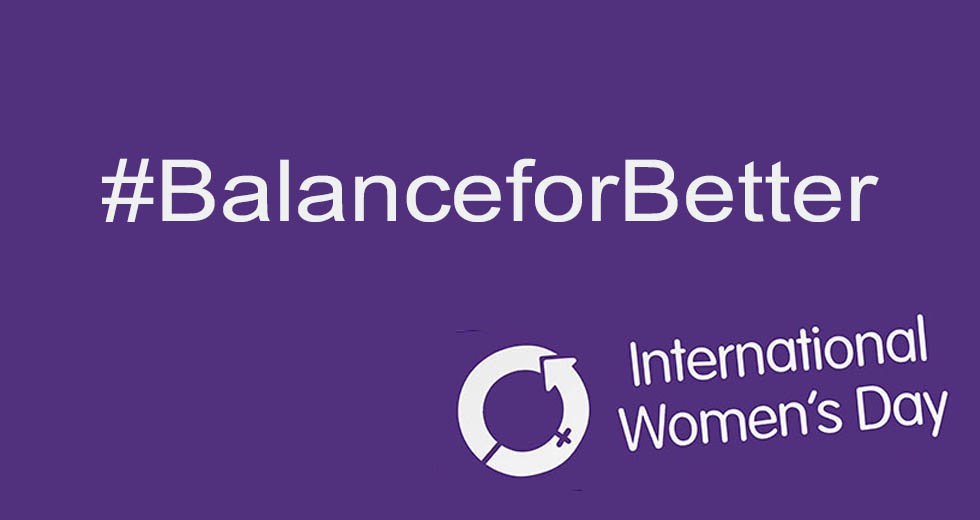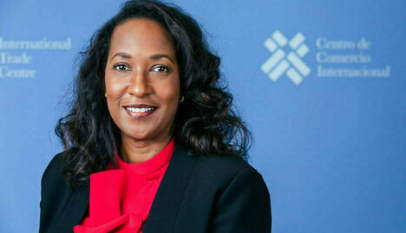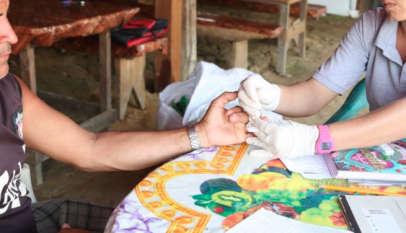Women`s Day 2019: Bridging Africa’s digital gender gap for better gender balance
The 2019 International Women`s Day (IWD) under the theme: “Think Equal, Build Smart, Innovate Change” calls for innovative and creative strategies for advancing gender equality as well as the empowerment of women, particularly in the areas of social protection systems, access to public services and sustainable infrastructure

The International Women’s Day (IWD), commemorated on the 8th of March every year, is a global observance day celebrating the social, cultural, economic as well as political achievements of ordinary women who are positively changing their communities all over the world. The day, which has been observed since the early 1900s, calls for gender equality in all spheres of life. Every year, the event is commemorated under a dedicated theme; last year’s official United Nations theme for the Women’s Day was: “Time is Now: Rural and urban activists changing women’s lives” while 2019’s celebration is themed: “Think Equal, Build Smart, Innovate for Change.”
This year’s campaign is being spearheaded under the hashtag #BalanceforBetter which serves as a call-to-action for driving gender balance across the world. More so, this year’s celebration focuses on innovative and creative strategies for advancing gender equality as well as the empowerment of women, particularly in the areas of social protection systems, access to public services and sustainable infrastructure.
“This year’s theme for International Women’s Day, “Think Equal, Build Smart, Innovate for Change” puts innovation at the center of efforts to reflect the needs and viewpoints of women and girls and to resolve barriers to public services and opportunities,” says Executive Director of UN Women Phumzile Mlambo-Ngcuka, in her message on this year`s International Women`s Day, March 8, 2019. “Remoteness need no longer be an exclusion issue when mobile money technology and digital payments can deliver social benefits to even the most remote households. Lack of roads need not prevent life-saving medication from reaching patients, with smart inventions like 15-year old Nigerian Eno Ekanem’s drone to make drops to rural areas, controlled by SMS messaging.”
Undoubtedly, science, technology and innovation (STI) offer unparalleled opportunities for advancing gender equality; however, trends in sub-Saharan Africa indicate a growing gender digital divide evidenced by women’s underrepresentation in the fields of science, technology, engineering, and mathematics (STEM). Thus, women are prevented from developing and influencing gender-responsive innovations to achieve transformative gains for the society. In order to address this glaring gender gap, women’s ideas and experiences must equally influence the design and implementation of the innovations that shape our future societies.
Against this backdrop, the International Women`s Day also presents an opportunity for women to accelerate the 2030 sustainable development agenda, by building momentum for the effective implementation of all the 17 Sustainable Development Goals (SDGs), especially Goal 5: Achieving gender equality and empowering all women and girls and Goal 4: Ensuring inclusive and quality education for all and promoting lifelong learning, respectively.
Women and girls, who make up more than half of the world’s population, are most often vulnerable to and more deeply impacted by poverty, climate change, food insecurity, lack of healthcare, and global economic crises. As a result, their contributions and leadership are central to achieving all the targets of the SDGs. Moreover, women and girls everywhere must enjoy equal rights and opportunities as men and boys and be able to live free of violence and discrimination. Thus, Goal 5 (women’s equality and empowerment) is integral to all dimensions of inclusive and sustainable development. In short, the achievement of the ambitious SDGs depends to a large extent on the successful realization of Goal 5 – no sustainable development without gender equality!
Over two years since the adoption of the 2030 global development agenda, the UN Women, in February 2018, launched its flagship report titled: “Turning promises into action: Gender equality in the 2030 Agenda for Sustainable Development”. The global monitoring report – the first of its kind – demonstrated using tangible evidences and data, the pervasive nature of discrimination perpetuated against women and girls across the world, and puts forth actionable recommendations towards fulfilling the goals and targets of the 2030 Agenda for Sustainable Development.
While presenting the report in New York, UN Women Executive Director Phumzile Mlambo-Ngcuka, said: “As a world, we committed through the SDGs to leave no one behind. This report’s new data and analysis underlines that, unless progress on gender equality is significantly accelerated, the global community will not be able to keep its promise. This is an urgent signal for action, and the report recommends the directions to follow.”
The report highlighted the reality that gender-based discrimination was deeply entrenched and present across all countries of the world, threatening the effective implementation and transformative potentials of the SDGs among women and girls. Globally, according to the report, “1 in 5 women and girls under the age of 50 reported experiencing physical and/or sexual violence by an intimate partner within a 12-month period.” The indices were even higher for sub-Saharan Africa, where 22.3% of women and girls aged between 15 and 49 reported experiencing physical and sexual violence by an intimate partner.
Furthermore, the report showed that globally, 750 million women and girls were married before the age of 18 and at least 200 million women and girls across 30 countries had undergone female genital mutilation (FGM). In sub-Saharan Africa, 37% of women aged between 20 and 24 were married or in a union before the age of 18. And African countries – Djibouti, Guinea, Mali, Sierra Leone, Somalia and Sudan – had the highest FGM prevalence rates in the world, at 85% or greater among women aged between 20 and 24.
Indeed! The lives of women and girls, in different dimensions of well-being and deprivation, are deeply intertwined; a girl who is born into a poor household and forced into early marriage, for example, is more likely to drop out of school, give birth at an early age, suffer complications during childbirth, and experience violence – all SDGs targets. These barriers that prevent women and girls from realizing their full potentials pose significant challenges to the achievement of gender equality and SDGs by 2030.
Given that gender-based violence is one of the most pervasive human rights violations in Africa today, eliminating it remains an absolute priority. In addition, achieving gender equality by 2030 requires urgent global action to eliminate the many root causes of discrimination that still curtail women’s rights in private and public spheres. For example, discriminatory laws need to change and legislations, targeted at proactively advancing gender equality, need to be enacted. Sadly, some 49 countries across the world (many of whom are in Africa) still lack the enabling laws protecting women and girls from domestic violence.












